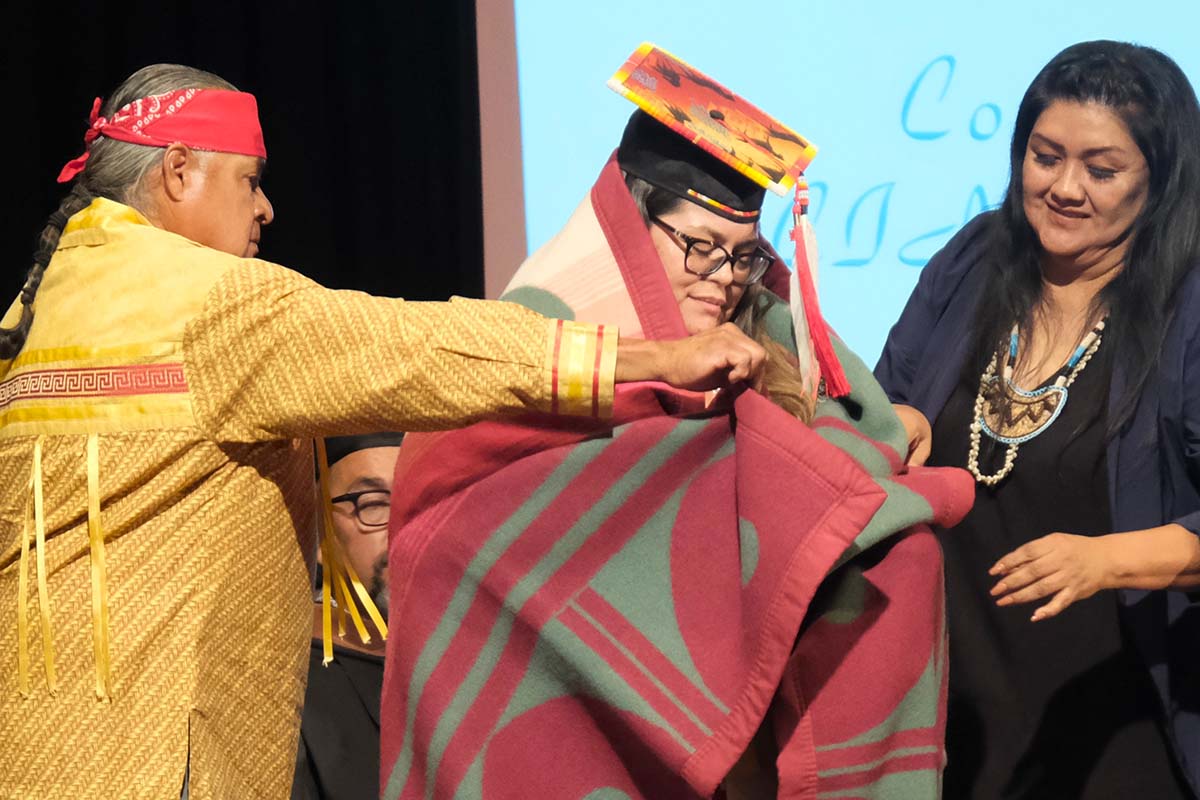
- Details
- By California Indian Nations College
Palm Desert, CA — California Indian Nations College (CINC) is proud to announce its seventh graduation cohort, marking a historic milestone as CINC celebrates its largest graduating class. The ceremony will take place in the Ballroom at Morongo Casino Resort & Spa on May 29, 2025.
Graduates will be honored in a special blanket ceremony, where each blanket—personally selected—symbolizes comfort, protection, and connection. Graduates will also receive a porcelain rose in memory of Pam Clute, bearing the message: “May your quest and passion toward academic achievement never fade or wither.”
This year’s commencement is made possible through the generous sponsorship of the Morongo Band of Mission Indians and the Cahuilla Band of Indians. Commencement will include cultural blessings by Elder Ernest Siva (Morongo Band of Mission Indians) and Elder Kim Marcus (Santa Rosa Band of Cahuilla Indians), traditional songs from the Morongo Bird Singers, and a keynote address from esteemed Cahuilla artist Mr. Gerald Clarke.
Founded in 2017 by Theresa Mike and with the support of the Twenty-Nine Palms Band of Mission Indians, CINC has been under the leadership of President Celeste Townsend (Guidutikad Paiute and Shoshone). CINC operates as the only accredited college in the state of California—home to over 1.4 million American Indian or Alaska Native citizens (U.S. Census Bureau, 2020). CINC is honored to lead this celebration and remains committed to educate, strengthen, and empower all Native and non-Native students.
Contact [email protected] for more information about the 2025 Commencement. To learn more or to donate to California Indian Nations College, visit https://cincollege.org/ or call (760)933-9833. Follow California Indian Nations College on Facebook www.facebook.com/CINCollege/, Instagram, and X @CINCollege.
Help us defend tribal sovereignty.
At Native News Online, our mission is rooted in telling the stories that strengthen sovereignty and uplift Indigenous voices — not just at year’s end, but every single day.
Because of your generosity last year, we were able to keep our reporters on the ground in tribal communities, at national gatherings and in the halls of Congress — covering the issues that matter most to Indian Country: sovereignty, culture, education, health and economic opportunity.
That support sustained us through a tough year in 2025. Now, as we look to the year ahead, we need your help right now to ensure warrior journalism remains strong — reporting that defends tribal sovereignty, amplifies Native truth, and holds power accountable.
 The stakes couldn't be higher. Your support keeps Native voices heard, Native stories told and Native sovereignty defended.
The stakes couldn't be higher. Your support keeps Native voices heard, Native stories told and Native sovereignty defended.
Stand with Warrior Journalism today.
Levi Rickert (Potawatomi), Editor & Publisher
